Why can't you store bananas in the refrigerator?
From time to time, we all decide to eat healthy starting tomorrow, to load up on vegetables and fruits. And today we’ll talk about the most popular of tropical fruits. Is it possible to store bananas in the refrigerator and how to preserve their beneficial properties?
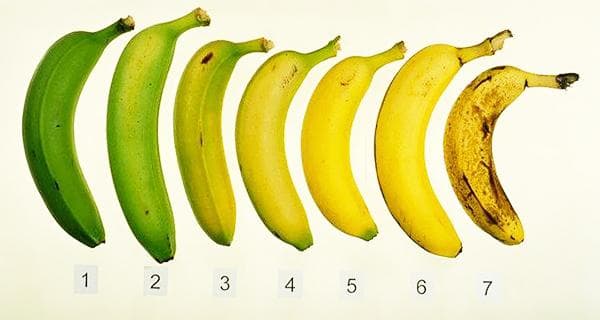
Storing bananas of varying degrees of ripeness
The method of storing it depends on the degree of ripeness of the fruit. Bananas are:
- green - unripe fruit of green color or just beginning to turn yellow, with a dense and hard peel;
- ripe - the peel is soft, the stalk is light brown, the fruit itself has a rich yellow color;
- overripe - the stalk and peel are soft and darkened. Black dots and spots appear on the peel. The pulp of the fruit resembles poorly mashed banana puree, which is held together only by the skin.
Unripe fruits reach a condition in which they can be eaten in a dark place at a temperature of 15–17 degrees.
When African fruits were not sold on every corner, were exotic and there were huge queues for them, our mothers stored unripe bananas in felt boots. Perfect temperature and darkness!
When storing ripe bananas, the main thing is not to let them become overripe. Ethylene causes rapid rotting of the fruit. It enters the fruit from the air through the stalk and spreads along the entire length of the fruit. There is a simple way to prevent the penetration of ethylene - you need to wrap the fruit cuttings with ordinary cling film. This will allow you to store the fruit for about a week, but only at room temperature.If you store ripe bananas in the refrigerator, even the presence of film will not help.
Overripe fruits are used for freezing. First you need to peel them and cut them into portions, because banana pulp cannot be frozen again.
Why is it better not to store bananas in the refrigerator?
This is, of course, not a global issue, but the debate has not subsided for many years. So can you still store bananas in the refrigerator or not?
- Unripe berries definitely do not need refrigeration. The cold prevents ripening, so they will remain green.
- Bright yellow fruits are best kept at room temperature. In the refrigerator the skin will darken very quickly. There is an opinion that when stored in a cold place, fruits lose their inherent taste and aroma and begin to sour. However, if you cannot eat ripe bananas right away, you can put them in the refrigerator for a while. The skin will turn black, but the flesh will remain fresh.
- Overripe bananas belong in the refrigerator. Only peeled, cut into portions and placed in plastic containers. Later, pieces of fruit can be pureed, added to smoothies, ice cream, pancakes or any other culinary delights.
A properly grown banana will develop dark spots on its skin in the refrigerator. Natural chemical processes occur that lead to this result. But if the skin does not darken in the cold, then you should think: were preservatives and chemicals used during fruit growth?
Banana storage rules
A few additional secrets about storing banana supplies:
- Bananas should not be stored in close proximity to other fruits. Only if you need to make a green banana ripe quickly, you can add an apple to it - it will speed up the ripening.
- Storage temperature is as important as humidity. In a humid environment, banana peels quickly begin to become covered with black spots. Therefore, when wrapping cuttings with film, you need to make sure that not a drop of water gets under it.
- If you need to keep bananas in the desired condition for more than a week, then you need to separate them not only from other fruits, but also from each other.
- These fruits are afraid of bright sunlight. To prevent them from darkening, do not place them on the windowsill.
- Any vegetables and fruits should not be placed in a plastic bag - this contributes to their rapid spoilage.
- To make thawed banana slices look presentable, you can soak them in a solution of water and vinegar for 2 minutes. There should be 4 parts water to one part acid.
Why are these bananas needed at all?
Banana pulp is simply a storehouse of vitamins and nutrients. It contains all B vitamins, beta-carotene, fiber, pectin, iron, phosphorus, potassium and calcium, sodium and magnesium, fructose.
Banana fruits have the following effects on the body:
- strengthen the heart muscle;
- have a beneficial effect on the functioning of the gastrointestinal tract;
- reduce cholesterol levels;
- prevent stress;
- improve your mood.
Despite the fact that the fruit is sweet, it can also be consumed if you have diabetes. Just choose green bananas: unlike ripe ones, they do not increase blood glucose levels.
There is only one thing that is not encouraging: the high calorie content of banana pulp. Eating more than 2 fruits a day is dangerous for slimness. However, this doesn't just apply to bananas: anything in excess is not healthy.
So, banana is a sunny tropical fruit, so it doesn’t like the cold. But if it is already hopelessly overripe, you should put it in the refrigerator until consumed.
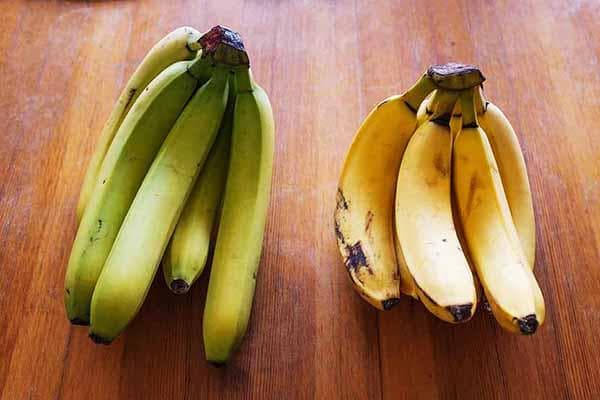
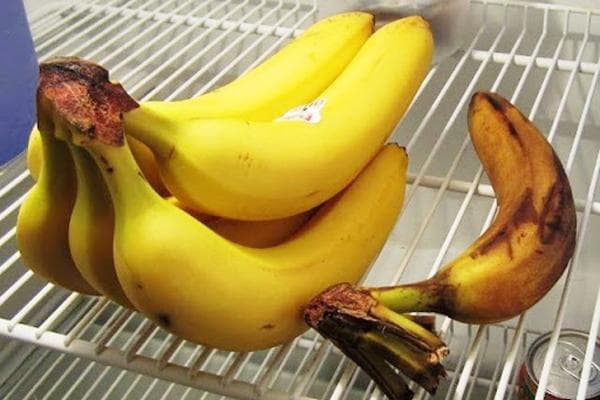
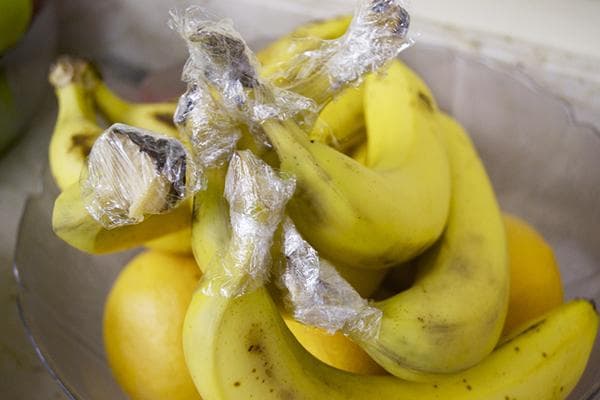
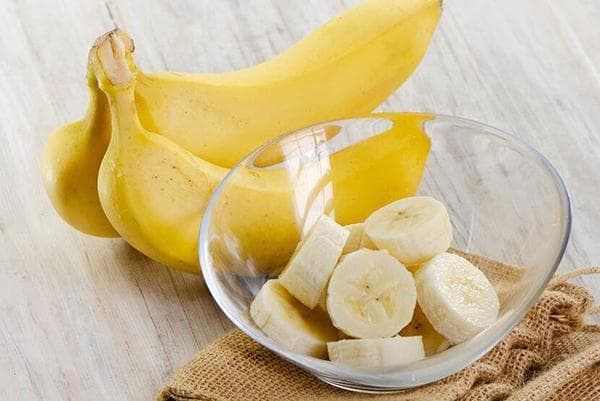
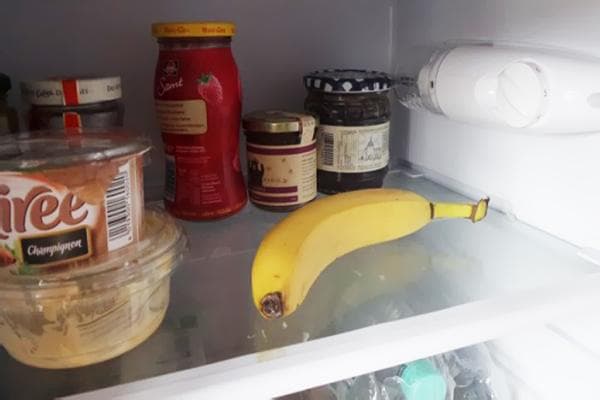
What is a refrigerator for, for beauty? They write all this nonsense, you can’t store it in the refrigerator, it will spoil, so keep it as a night light.